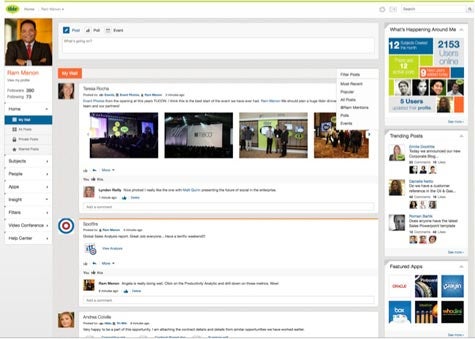A lot of businesses get the concept that business processes are inherently social. It’s figuring out how to socialize those business processes with each other that’s the hard part.
TIBCO Software at its TUCON 2012 conference this week moved to address that with the launch of a Social Graph API that comes with the latest version of the company’s tibbr business process integration platform.
According to Ram Menon, president of social computing for TIBCO, the Social Graph API makes it easier to weave objects together to create a business process that is substantially greater than the sum of the business process parts. To help drive that vision of a social enterprise, TIBCO this week also announced that it is opening its app store for applications built on top of tibbr to include both custom applications developed by its customers and third-party partners, including Box, Badgeville, Wayin, Teamly, BrightIdea, Fileboard and Whodini.
As part of that effort, the new release of the company’s tibbr platform also includes the ability for people to create social profiles that identify what business processes they are associated with and a set of analytics tools that makes it easier to discover business process events that are related to those profiles. In that way, Menon says that people can more easily discover where the momentum of the business is heading, and adjust their roles accordingly. Conversely, they may discover that too many resources are being applied to a specific business process.
TIBCO has been helping to pioneer the whole notion of social business process management (BPM) in the enterprise. The basic idea is that once a business process is identified, it should be relatively easy to track all the interactions with that process in much the same many people track their interactions on social networks such as Facebook.
Most businesses obviously have a way to go before attaining that level of socialization around their business processes. But Menon says given the crucial role most people play in any given business process, it’s only a matter of time before organizations begin to think of managing those processes in a more social context.
In fact, thanks to social networks, the average person is being essentially retrained to think more in terms of relationships. That means it shouldn’t be too much longer before they naturally start to think that same paradigm applies to not only people, but entire sets of processes.



